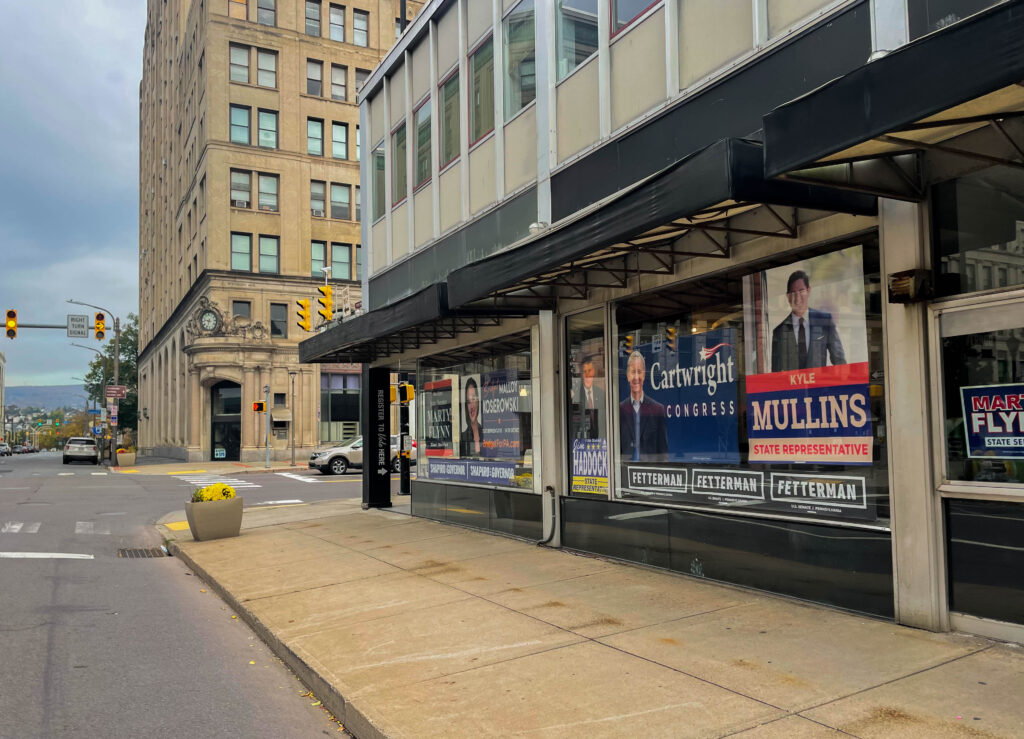As the polls open on November 8, voters across Pennsylvania will be submitting their ballots based on candidates’ stances on abortion rights, gun laws, and inflation.
To some residents, however, the future well-being of the state will be intertwined with how elected officials plan to tackle drug reforms including marijuana pardons and decriminalization.
Both issues were thrust back into the political spotlight in September when Gov. Tom Wolf and Lt. Gov. John Fetterman announced the administration’s pardon program for Pennsylvanians with non-violent marijuana offenses. President Joe Biden unveiled a similar federal pardon program in October.
According to Gov. Wolf’s communication office, during the one-month application period, 3,539 Pennsylvanians applied, hoping for relief from their non-violent minor use and possession charges.
Pardoned recipients may be eligible to be released from prison and regain civic rights such as the right to hold a firearm, serve in the military, sit for jury duty, run for office, and vote.
“[Handling drug offenses] isn’t a theoretical issue,” Laura Mitchell, a project director in Scranton for the Democratic Congressional Campaign Committee, said of the program’s effect on Pennsylvanians. “It’s family members, it’s neighbors, it’s church members; So when you talk about the weed issue, it connects, because it’s an area where you have a lot of people going to jail for something that could be treated as a healthcare issue.”
Fetterman, who is running for Senate, and Josh Shapiro, the Democratic candidate for governor, have both made decriminalizing marijuana a talking point in their campaigns. Republican gubernatorial candidate Doug Mastriano has been clear in his disapproval of the marijuana pardon program, calling legalization “a stupid idea,” in during a radio broadcast for ‘Colonel on the Call’ earlier this year. A source close to his running mate, Carrie Lewis DelRosso, however, said the candidate for lieutenant governor supports the idea of decriminalizing marijuana. Neither Mastriano nor Lewis DelRosso could be reached for further comment.

Matt Cartwright, the current Democratic Congressman representing Scranton, has previously supported legislation focused on decriminalizing marijuana, and legalizing the drug for medical uses. He’s now centered his platform on opioid recovery, another critical issue for Pennsylvanians.
In Scranton’s Lackawanna County alone, 80 people died from opioid overdoses in 2020. Last year, that number rose to 113, and is projected to be even higher by the end of 2022, according to numbers provided by the state’s Drug and Alcohol Program.
For constituents such as Mike Kelly, a Scranton-based attorney specializing in drug offenses, the pardon program may be an opportunity to change state laws surrounding driving under the influence.
In Pennsylvania, simply having used marijuana is enough for a DUI charge, Kelly noted of the state’s Title 75 statute. In neighboring New York and New Jersey, however, law enforcement must prove the drug impaired one’s ability to drive safely. Pennsylvania’s law discriminates against those who use marijuana medicinally, Kelly said.
The reasoning behind Pennsylvania’s vehicle code relies on marijuana’s categorization as a Schedule 1 substance, meaning that it doesn’t have any medical use or purpose, and is highly addictive. But following the drug’s legalization for medicinal use in 2016, he said, the state’s DUI law no longer made legal sense, failing to account for those who need marijuana as treatments no different than antidepressants or other drugs.
Like Kelly, Kristal Bush, founder of Free My Weedman–an organization advocating for freeing those affected by the war on drugs–also sees drug reforms as going beyond simple pardons or legalization. As an organizer for the Pennsylvania Cannabusiness Association, Bush said Pennsylvania should look to New York and for fair marijuana laws.
In New York, the Marijuana Regulation & Taxation Act passed in 2021 incentivized participation in the new industry by automatically expunging an individual’s marijuana convictions and investing 40% of the cannabis tax revenues toward rebuilding communities harmed by the war on drugs.
“This is the time for small business owners to put together a plan to figure out how they want to enter this industry and how they want to contribute to this industry,” Bush said of the next few years, during which she believes marijuana will be legalized in Pennsylvania.
“We need to slow walk this and make sure we have the right language in place that will benefit the people who were directly harmed–making sure that there is a program that helps people who were incarcerated with [business-related] application fees, for example.”
Regardless of how the elections end, though, politicians and government officials can do better by the communities and the people most affected by marijuana offenses, she said. In this case, Bush specifically noted the lack of marketing about the pardon program’s existence, the short application window, and the lack of consideration for those without the tools necessary to apply, such as computers and internet access.
“We can do more,” Bush said.
Wolf is scheduled to sign approved pardon applications Dec. 16.

